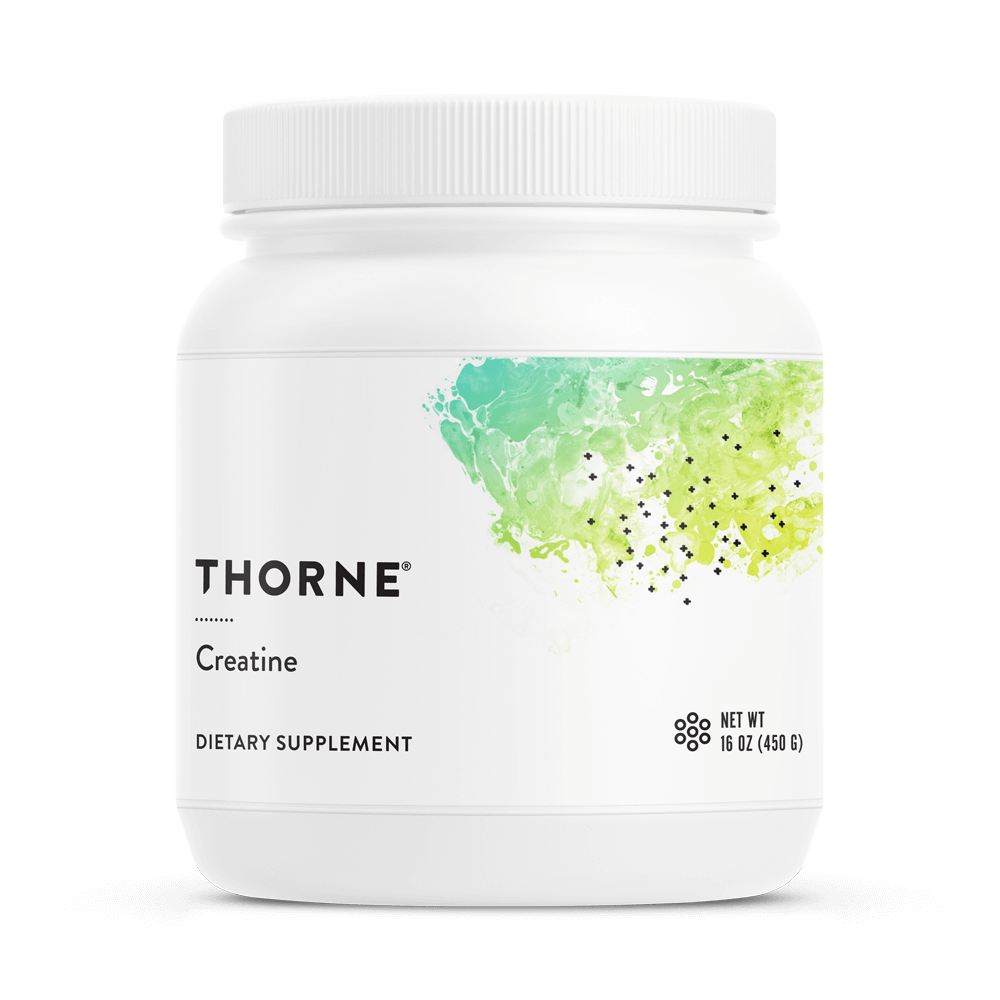“Is creatine safe? Isn’t it a steroid?”
“Isn’t creatine for men wanting to bulk up? Can women use it, too?”
“I’ve heard it will hurt my kidneys... is that true?”
If you’ve been strength training for a while you prob-
ably have some questions about creatine.
Creatine is one of the most researched supplements in the fitness world (and
nope, it’s not a steroid!), but there’s still a lot of confusion about its benefits for
women.
Creatine is safe for most people—and it can be a powerful tool for helping women improve performance, recovery, and even brain health!
Want all the deets? Let’s break down the facts and clear up the myths!
What Is Creatine?
Creatine is an amino acid derivative that increases ATP-creatine phosphate
(ATP-PCr) stores, which are used for rapid energy production.
In non-science speak, it helps muscles work harder and longer, meaning
you can lift a given weight more times and build more muscle.
Because they tend to have less muscle mass, women have 70–80% less creatine
stores. They also eat less dietary creatine (e.g., beef, lamb, pork, or fish) than
men.So, supplementation with creatine monohydrate might be a good alternative for a woman with strength or performance goals—plus, we have decades of research supporting its safety and efficacy.
In fact, creatine monohydrate is among the most well-studied and effective
supplements for improving exercise performance.
What Are the Potential Benefits?
+Improved strength and performance in women who take it for an
extended period of time.
+Better bone and cardiovascular health in older adults, likely because
it enables people to do more exercise.
+ Boosted brain health and cognitive processing. This is especially true
when there’s a deficit in brain creatine, which can come from acute
stressors (e.g., sleep deprivation) or chronic conditions (e.g., aging,
Alzheimer’s disease, depression).
Is Creatine Safe?
Creatine can cause water retention, which can potentially interfere
with blood pressure and other medications. That said, men seem to
experience this more than women.
If you are interested in supplementing with creatine,
make sure to discuss it with a registered dietitian, healthcare provider,
or pharmacist to determine whether creatine is beneficial and safe for
your unique situation.
Supplementing with creatine also increases blood creatinine levels because
creatinine is the product of creatine (and phosphocreatine) breakdown
that is then cleared by the kidneys.Since elevated creatinine levels
are one way to flag possible kidney issues, let your healthcare provider know what and how much you’re taking; both you and your healthcare provider should be aware that you may have high creatinine. Creatine is not harmful to your kidneys, though more studies are needed on those with kidney disease.
You might also be wondering if creatine is safe during pregnancy or
while breastfeeding.
Well, we have minimal research on creatine use in pregnant humans
(and of course, we need to take rat studies with a grain of salt!). The
research we do have seems to indicate that it’s safe and potentially
beneficial, but always consult your healthcare provider before
starting any new supplement or medication during pregnancy or
while breastfeeding, including creatine.
Interested in Trying It Out? Talk to an Orange Shoe Owner and get a Thorne Discount!
Daily recommended creatine monohydrate dose = 3–5 grams
General guidelines for taking creatine:
-Take enough creatine to increase muscle creatine content. The
standard recommendation is 3–5 grams per day, every day.
-Be consistent with your intake, and be patient. Give it at least two
months before evaluating results.
Remember to discuss any supplementation with a registered dietitian, health-
care provider, or pharmacist before starting to determine if it’s beneficial and safe for your unique body.
